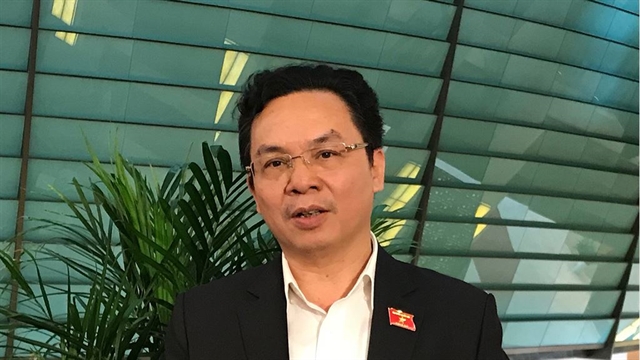
|
| Dr Hoàng Văn Cường |
Dr Hoàng Văn Cường, Vice Rector of the National Economics University, speaks to the newspaper Khoa học & Đời sống (Science and Life) about the differences between full-time and part-time diploma courses
From July 1, 2019, the revised Law on Higher Education came into effect, meaning there will be no differences between full-time and part-time diploma courses. What do you think of the change?
Under the law, there is not difference between the part time diploma course and the full time diploma course.
Legally speaking, there are no differences in quality between the part time and full time diplomas. However, in the past, the form of education was officially described in the diploma. But now under the revised Law of Higher Education, it is up to the Ministry of Education and Training (MOET) to decide whether they should write it on the diploma certificate.
Under the revised law, there is no difference in the diplomas granted to students who have followed formal or informal courses. Yet, on their official documents, the applicants have to state clearly what form of education or training courses they have attended.
For example, in Việt Nam, besides their diplomas, the applicants still have to attach their academic achievement reports.
Do you support the idea that the Ministry of Education and Training should not write on the student’s diploma whether it was a full-time or part-time course?
I don’t think that the MOET should differentiate the diploma that a student has been awarded after their graduation from either full time or part time courses for two reasons.
First, in our society, there is a certain stigma against people who have been awarded a diploma after attending a part time or informal course. What’s more important is that we should ensure the training quality of both formal and informal forms of education is the same.
Second, to help the students feel comfortable with whatever course they choose to follow.
In reality, a diploma granted by a formal education institution is still preferred to a diploma from an informal education institution. How do you respond to that?
This is true. If we take the case of a student following a formal course, they have to study full time. Meanwhile, for a student following an informal course, their time in the class varies as they still go to work as normal.
For the full time students, they have to attend classes regularly at their universities. They have to attend workshops and other activities, including physical classes and social activities.
So do you think the differences in training will result in differences in the outcomes for full-time and part-time students?
For any student, if they want to get a diploma, they have to pass the required tests as well as their assignments. However, for full-time students, the knowledge they have gained during the courses is much higher than that of the part-time students.
However, the part-time students have some advantages over their full-time peers – their practical experiences. During the course, the part-time students could apply certain knowledge they have learned in the course in their work and improve their skills.
Many people have said personal capacity should be more important than diplomas or other certificates. How do you respond to that?
In my opinion, when the law does not discriminate against people having diplomas while they are on the job, employers should then focus more on the occupational skills that the applicants have. If such a change is adopted by the employers, I’m pretty sure that the job seekers will have to change their old idea from attending a job training course to get certain diploma, but to help them learn to perform their jobs better in the future.
Do you have any comment on the informal training courses offered by the National Economic University?
The National Economic University has run an Executive MBA for senior executives on the weekends.
These people already have a lot of practical experience in their day-to-day work. Yet they want to further enrich their management knowledge to improve their performance.
I’m confident if we have a good training agenda and organisation for the course, I’m pretty sure, after attending such a course, they will become good management officers. — VNS
.jfif) Opinion
Opinion






